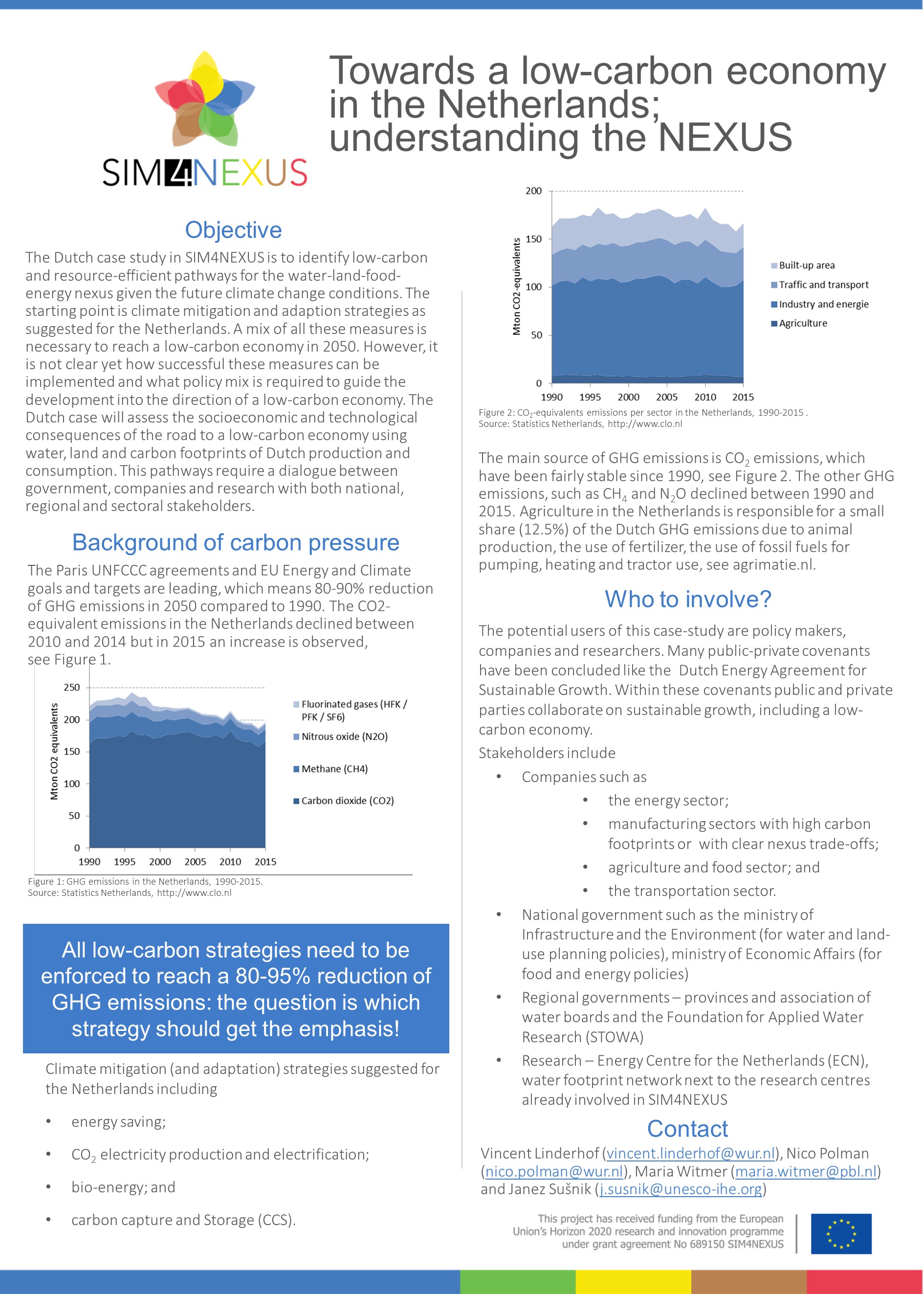The Netherlands: bio-based and circular economy
Lead Partners: Wageningen Research and PBL Netherlands Environmental Assessment Agency
Trade-offs between biomass for renewable energy and (food and non-food) resource efficiency.
The Netherlands aims for a low-carbon and resource-efficient economy in 2050. The use of biomass for energy was identified as an alternative with a significant potential contribution to the realisation of these goals. Many types of biomass could be used for energy, like wood, manure, wastewater, organic waste, etc. Also, growing biomass for energy or other new uses like bio-based products would require land, which is already scarce in the Netherlands. Moreover, other types of renewable energy require land as well (solar power parks, and wind power turbines). These competing claims lead to trade-offs between land used for food and non-food production and land used for renewable energy production. The key question addressed is: what is the potential role of biomass in the pathway to a low-carbon and resource-efficient economy in the Netherlands?
Here you can find the Report from the first workshop: VERSLAG WORKSHOP SIM4NEXUS NL WAT IS DE ROL VAN BIOMASSA IN DE LOWCARBON ECONOMY IN 2050?
Click here for more information
For more information please contact:
Vincent LINDERHOF
Wageningen Research
vincent.linderhof@wur.nl
Nico POLMAN
Wageningen Research
